Harmony in Heritage: Sharlene-Monique Unveils 'A New Life' For World Book Day
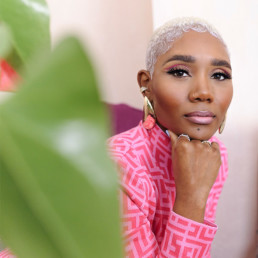
Written by Sharlene-Monique
Sharlene-Monique is a London based singer-songwriter, author and broadcaster. She is known as a versatile, passionate, authentic, collaborative creator and performer. Her three concept projects Destiny, Perspectiveand Raw & Honest Love combine evocative, soulful vocals with deeply inspiring songs of empowerment, love and self-acceptance with music to move and soothe the soul and spirit. As an independent artist and lead vocalist Sharlene-Monique has toured widely in Europe including as a support act for a 15 date UK tour with the pop legend Gabrielle.
Renowned Singer-Songwriter-Broadcaster Sharlene-Monique is set to release her second book, A New Life, a heart-warming picture story celebrating the hope, courage, and determination of the Windrush generation. Scheduled for release on Tuesday, March 5, 2024, for World Book Day. Sharlene-Monique navigates the loss of her grand-parents by sharing their inspiring journey in A New Life. The book recounts the true story of Winston and Mavis, who, in 1958, embarked on a courageous journey from Jamaica to London, laying the foundation for a new life for their family.
The experiences of their great-granddaughter, Tahlia, unfold as a poignant narrative, resonating with young readers aged 3-7. It is made all the more special by the viral TikTok video that captured the spirited dance of Sharlene-Monique’s 90-year-old grandparents, viewed over 500,000 times across multiple social media platforms.
A New Life stands as a valuable resource for children, offering insights into the Windrush generation’s experiences. It sparks conversations about family stories, resilience, and the passing down of talents and interests through generations. Serlina Boyd, founder of Cocoa magazine, praises the book as “a beautiful picture book that tells the story of the brave arrival of Tahlia’s Great-Grandparents embarking on their new life in Britain. A wonderful read for the whole family.”
Sharlene-Monique is known for; her heartfelt song ‘Thank You’, released in June 2023 to commemorate the 75th anniversary of the Windrush generation which continues to make waves and was featured on ITV, her recent hosting of the Melanated Stories documentary series on TBN UK and a supporting role in the 15-date tour with UK pop legend Gabrielle showcase her multifaceted talents. Sharlene also continues to sing with the Kingdom Choir since their unforgettable performance at the 2018 Royal Wedding in front of a global televised audience of 2 billion people. With a background in education and as an award-winning children’s choir conductor, Sharlene-Monique adds depth to her artistic endeavours.
Reflecting on the book, Sharlene-Monique shares, “When I shared the video of my grandparents dancing, I had no idea the response would be in the thousands, it brought so much joy to people. This book will ensure their legacy will live on for many years to come, and I am so proud of that.”
A New Life: Available for pre-order now via sharlenemonique.com
Available at amazon.co.uk Tuesday, March 5, 2024
For interviews and more info, please contact sharlenemoniq@gmail.com
Facebook | Twitter | Instagram | TikTok| Website
Observations on the implementation of Relationships, Sex, and Health Education (RSE) in an English Primary School
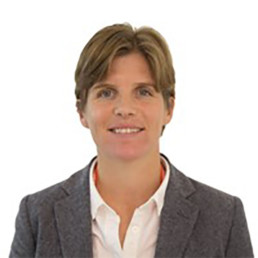
Written by Alex Baird
they/them
Before moving to the Higher Educator sector seven years ago, I worked in various schools for over twelve years, latterly as Director of Sport. At the University of Bedfordshire I am a Senior Lecturer in Sport and Physical Education, an EDI Lead, and the Vice Chair of the LGBTQ+ Alliance staff network. I have just finished an EdD at UCL and the research I write about here constituted my EdD thesis.
My research took place in a primary school in Greater London during the summer term of 2021, just as Relationships and Health Education (including the new LGBT content) had become mandatory. At this time, Covid-19 restrictions were lessening though some protocols were still in place and the effect of lockdowns on both pupils and staff was evident. The school has no religious affiliation but the majority of pupils are Muslim, with a high proportion of English as an additional language (EAL) learners and higher than (the national) average of pupils receiving free school meals (FSM). The research was designed to appreciate how teachers feel positioned and work alongside them to create and teach an inclusive and effective RSE curriculum. Participants included five (non-LGBT identifying) females from the school who held a range of positions, roles, and experience but had all previously taught RSE and were currently teaching in Key Stage 2. Participants were asked to reflect upon RSE and the school culture via semi-structured online interviews. RSE lessons and other subject lessons were observed. Teachers’ reflections of lessons were gathered after observation through an informal discussion.
In interviews teachers expressed a commitment to a rights-based approach in RSE and highlighted the value lessons offered to facilitate dialogue with pupils. Lesson observations revealed a cautious approach to the age at which certain topics (e.g. puberty and conception) were covered and when these topics were covered, dialogue did not deviate from the purchased curriculum PowerPoint slides. The culture and routines of RSE lessons closely resembled other subject lessons observed, that is pupils engaged and valuing the subject, generally sitting in their allocated class seats but the authority and attention remaining on the teacher at the front of the class. Teachers wanted to offer fixed, clear and definitive truths, reinforcing good behaviour and deeming some pupils’ questions as inappropriate. Teachers remained uncertain about what personal opinions they could express whilst still adhering to professional conduct. Lessons which were only 45 minutes in length, shorter than Mathematics and English lessons observed, left teachers often hurrying the pace to try to cover the content. Lesson observations highlighted that gender norms are still being powerfully reinforced including the use of gender stereotypes in scenarios and segregated sex education lessons which send these messages overtly and covertly to pupils.
In light of the current heated and polarising debates surrounding LGBT lives in the UK, I would like to stress my call to rethink how RSE is taught should not be taken to mean it should not be taught. A fuller range of pedagogical approaches that include a critical and postmodern orientation are required to recognise pupils’ agency, their pre-existing knowledge, their emotions, and to the likely presence of pupils in LGBT families and pupils who are or may come to identify as LGBT. Effective RSE remains dependent upon schools providing sufficient training for staff, listening to pupils, and communicating effectively with all parents/carers to address misconceptions or issues. Actualising and normalising LGBT themes needs to go beyond merely a bullying discourse to seek to critique broader school culture and practices.
A portrait of the teaching of the British Empire, migration and belonging in English secondary schools
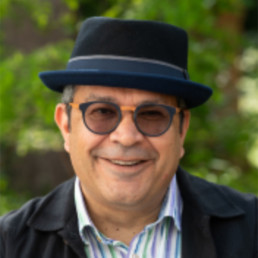
Written by Dr Jason Todd
Jason is a Departmental Lecturer at the Department of Education at the University of Oxford and currently leads the PGCE History programme. Before joining the University of Oxford, he taught history for 19 years in various London state schools, including time as an Assistant Headteacher in a Special Needs school.
I am working on a research project aiming to provide an empirical portrait of current teaching and learning around the interconnected themes of empire, migration and belonging in England’s secondary schools. This project’s aim is a simple one: to support teachers with the teaching of the British Empire, migration and belonging.
Histories of empire and migration are fundamental to understanding modern Britain including how we make sense of issues of belonging and identity. Recent events, from Brexit in 2016, to the Windrush Scandal in 2018 and the Black Lives Matter activism of 2020, have drawn attention to the interplay between the past and the present in dramatic ways, highlighting not only the salience of these histories but also their contested nature.
Despite its importance, there is a shared acknowledgement at the heart not only of recent campaigns from organisations such as the Runnymede Trust and Black Curriculum Project but also emphasised within the Commission on Race and Ethnic Disparities report, that there is currently no credible, comprehensive evidence base from which to reliably judge the extent to which today’s secondary students are being taught about the history and legacies of the British empire at all, let alone what they are being taught, in what manner and why. There is however evidence that teachers themselves have identified the need for targeted professional development support and training in this area.
It is precisely in response to this demand that I, as lead author of a letter to the Times in 2020, reiterated the TIDE-Runnymede recommendation that the government invests in better supporting teachers to confidently tackle these complex and potentially contentious themes. Both the Times letter and TIDE-Runnymede campaign made explicit reference to work from the UCL Centre for Holocaust Education’s internationally renowned and distinctively research-led approach to transformative teacher professional development. The Portrait of the teaching of the British Empire, migration and belonging research project was thus conceived as a crucially important intervention towards ultimately supporting teachers by first providing a much needed, robust and comprehensive, empirical evidence base. Our survey is one tool we are using to examine issues associated with teaching the British Empire, migration and belonging in schools and we encourage teachers of all subjects to complete it. https://redcap.idhs.ucl.ac.uk/surveys/?s=L33D9YEX7KRET3EX
We think that this project represents a tremendous opportunity to understand and shape the way young people engage with the enduring legacies, and ongoing debates, regarding the British Empire. Given the complexity of the topics, and the contested nature of many current debates, our desire is to offer nuance and illumination.
You can find out more about this project on our website https://portraitemb.co.uk/
These potent legacies shape the lives of millions, deeply affecting our sense of identity and belonging. It is critical that we forge paths towards better collective understanding of these subjects, however controversial. Confident and informed teachers are, of course, central to this.
Jason Todd is Co-Lead Investigator on a collaborative research project “A portrait of the teaching of the British Empire, migration and belonging in English secondary schools.” which brings together scholars from IOE, UCL’s Faculty of Education and Society and the University of Oxford’s Department of Education.
Beyond the Wall of Diversity
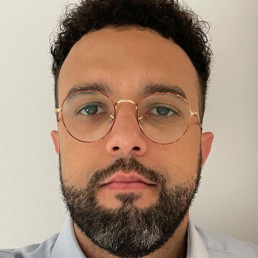
Written by Jonathan Lansley-Gordon
Jon studied theoretical physics at Imperial College London, before embarking on a teaching career in secondary and further education. Co-founder of The Blackett Lab Family – a national network of UK based Black physicists – he is passionate about widening access to STEM for traditionally excluded and underrepresented young people. He is a writer and series editor for Oxford University Press, authoring the Teacher Workbook for AQA GCSE Physics. A former Assistant Headteacher and school governor, he now runs Physics Forward – an organisation that provides support for schools, trusts and higher education institutions on all things science, curriculum, and DEI strategy.
Scenario: the head of physics wants to celebrate diversity in the curriculum. They create a ‘wall of diversity’ for the department, showcasing various historic and current black and brown physicists.
I sometimes give keynotes that get the audience to discuss this scenario. More often than not, there’ll be a few nervous stares back at me – almost expecting to be told that this is something terrible and ignorant.
I quickly reassure my fellow science educators that this particular case study, IMO, is by no means an example of something ‘bad’. Actually, I think – as a starting point – raising the profile and visibility of racially diverse physicists is positive for a host of reasons; black and brown people are typically absent from science curricula (as is the case across many other subjects), which can reinforce the implicit notion that science – and especially physics – is reserved exclusively for people who are [insert dominating characteristics here].
The following questions provoke some deeper thought around this scenario:
- Is the intention behind this ‘wall of diversity’ clear to the students?
- Does the wall showcase the achievements and contributions of the featured scientists, alongside (and contextualised by) their ethnicity?
- Is this project the only reference to diversity, or the only mechanism by which conversations about diversity is introduced in the classroom?
- Who contributed to the design and people featured?
- How / when will the project be revisited and refreshed?
- In what ways is diversity related to gender / age / sexual orientation / neurodivergence / disability acknowledged and celebrated elsewhere?
- Does this sit within a wider departmental strategy to incorporate diversity and inclusion?
I won’t pretend that the secondary physics curriculum lends itself to easy and natural opportunities to explore themes related to identity and representation. There is a lot of content to get through: energy, forces, waves, gases and electricity don’t immediately conjure inspiration of thought related to human identity. So, in some ways, it’s understandable that we might turn to “curriculum accessories” – people posters – at the risk of students sussing out our tokenistic nods to inclusion.
This is not to say there is no way to go about doing it authentically. Subject content is one of multiple lenses we can use when thinking about diversifying a physics curriculum – and indeed, the wider curriculum. How the content is delivered (teaching, learning and assessment techniques), and student voice (surveying their attitudes, values and beliefs with respect to physics) are a couple of other lenses that can help frame approaches to weaving inclusive themes through the curriculum.
At Physics Forward, we give physics and science educators the thinking tools to develop strategic approaches and practical resources to creating a diverse and inclusive curriculum through these and other lenses. Get in touch to have a chat about how we can support you and your team do the same!
Is there a hierarchy of protected characteristics?

Written by Hannah Wilson
Founder of Diverse Educators
One of the questions we regularly ask in our DEI training for schools, colleges and trusts is which of the protected characteristics are visible within your context.
This question is deliberately wide and can be interpreted in a couple of different ways:
- Which of the 9 PCs are visible? i.e. which ones can we see as some are hidden/ invisible.
- Which of the 9 PCs are visible? i.e. which are present in our community and thereby which are missing or do we not have/ know the data to confirm they are present.
- Which of the 9 PCs are visible? i.e. which are being spoken about, invested in, have we received training on.
Often people ask do we not mean – which is a priority? And we emphasise to focus on visibility and explain the gap between intention and impact as there is likely to be some dissonance between what is happening and how it lands.
The reflections and discussions across a full staff will surface some of the disparities of what is being paid attention to. Moreover, it will also highlight the difference in perspectives across different groups of staff – groups by role/ function and groups by identity.
A key thing for us to reflect on, to discuss and to challenge ourselves to consider is that there are nine protected characteristics – so are we thinking about, talking about, paying attention to all of them simultaneously? Are we balancing our approach to create equity across the different identities? Are we taking an intersectional lens to consider who might be experiencing multiple layers of marginalisation and inequity?
We encourage schools to lean into DEI work in a holistic and in an intersectional way, as opposed to taking a single-issue approach as our identities are not that clean cut. We worry that some organisations are focusing on one protected characteristic per year, which means that some people will wait for 8-9 years for their identity to be considered and for their needs to be met. This is also a problem as we generally spend 7 years in a primary context and 7 years in a secondary context so all 9 would not be covered in everyone’s educational journey.
Trust boards, Governing bodies, Senior leader teams do not sit around the table and decide that some of the protected characteristics are more important than others, but there will be a perception from outside of these strategic meeting spaces that there is a hierarchy. i.e. different stakeholders will have differing opinions that in this school we think about/ speak about/ pay attention to/ deal with XYZ but we do not think about/ speak about/ pay attention to/ deal with ABC.
Another thing to consider about the perceived hierarchy is regarding which of the protected characteristics we are expected to log. If all 9 of the protected characteristics are equal, why do schools only need to log and report on two of them for the pupils’ behaviour and safety – we are expected to track prejudiced-based behavioural incidents of racism and homophobia? Does this mean that transphobia, islamophobia, ableism and misogyny are less important? Does this mean we are holding the student to account but not the staff?
One solution to this specific imbalance is to move from a racist log and a homophobia log to a prejudice log. A log that captures all prejudice, discrimination and hate. A log that captures all of the isms. A school can then filter the homophobia and racism to report upwards and outwards of the organisation as required, but the organisation’s data will be richer and fuller to inform patterns of behaviour and intervention needs.
CPOMs and other safeguarding and behaviour software systems enable you to tailor your fields so see what capacity yours has to add in extra fields. You can then log all prejudice and track for trends but also target the interventions. We have been working with a number of pastoral leaders and teams this year to grow their consciousness, confidence and competence in challenging language and behaviour which is not inclusive and not safe. We are supporting them in making their processes and policies more robust and more consistent to reduce prejudice-based/ identity-based harm in their schools.
Another consideration alongside the student behaviour logging and tracking is to also consider the logging of adult incidents. Do our people systems capture the behaviours e.g. microaggressions and gaslighting that the staff are enacting so that these patterns can also be explored? Do our training offers for all staff, but especially leaders and line managers empower and equip them to address these behaviours?
So as we reflect on the question: Is there a hierarchy of protected characteristics?
Consider how different people in your organisation might answer it based on their unique perspective and their own lived experience. And then go and ask them, to see how they actually respond so that you become more aware of the perception gap – if we do not know it exists, we cannot do anything about it – and the learning is in the listening after all.
Safeguarding Inclusion: Nurturing Diversity in Educational Settings
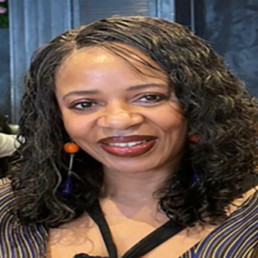
Written by Caroline Anukem
Caroline Anukem is Equity, Diversity and Inclusion Lead at Beaconsfield High School in the UK. She is a driving force, a change-maker, and a relentless advocate for equity.
In the intricate cosmopolitan British society, the journey of being black and British often interconnects with the educational landscape in profound ways. From the halls of primary schools to the lecture theatres of universities, the quest for inclusion and diversity shapes the experiences of students and educators alike. As someone who has navigated this first-hand, I have come to understand the vital role that practice and policy play in safeguarding the well-being and success of every individual within these institutions.
Reflecting on my own educational journey, I recall moments of both triumph and tribulation. From the early days of primary school to the complexities of university life, I encountered an array of challenges and opportunities that shaped my sense of self and belonging. In the midst of this journey, the importance of representation and inclusivity became abundantly clear. Seeing individuals who looked like me in positions of authority and influence instilled a sense of pride and possibility, while the absence of diverse perspectives served as a reminder of the work that still needed to be done.
When I applied for the role of Equality, Diversity, and Inclusion (EDI) Lead. Initially, it struck me as a novel and innovative approach to promoting inclusivity within the educational setting. However, as I delved deeper into the role and its implications, I came to realise the profound parallels between EDI and safeguarding.
Just as safeguarding measures are in place to protect the physical and emotional well-being of students, EDI initiatives serve to safeguard the diversity and inclusion of all individuals within the educational community. From ensuring that curriculum materials reflect a diverse range of perspectives to implementing policies that promote equality of opportunity, the role of an EDI Lead is multifaceted and far-reaching.
In many ways, the principles of safeguarding and EDI are intertwined. Both prioritise the creation of safe and supportive environments where individuals feel valued, respected, and empowered to thrive. Just as safeguarding protocols employ a triage system to prioritise the most urgent needs of students, EDI initiatives must also adopt a strategic and targeted approach to address the unique challenges and barriers faced by marginalised communities.
One of the most profound benefits of a truly inclusive and diverse educational environment is the transformative impact it has on individuals and communities. When students see themselves reflected in the curriculum, when they encounter diverse perspectives and experiences in the classroom, it enhances a sense of belonging, wellbeing and empowerment which will ultimately correlate to improved academic achievement. It cultivates empathy, resilience, and a deep appreciation for the richness of human diversity.
As an EDI Lead, my role is not just about implementing policies and practices; it is about embedding a culture of inclusivity and respect that permeates every aspect of school life. It is about amplifying the voices of marginalised communities, challenging systemic barriers, and championing the rights of every individual to learn and thrive in a safe and supportive environment.
The journey towards creating truly inclusive and diverse educational settings is a collective endeavour that requires commitment, collaboration, and courage. This has prompted Beaconsfield High School (BHS) to take the bold step of hosting our first EDI conference in April this year. We will focus on highlighting the parallels between safeguarding and EDI. We will strive to communicate better understanding of the interconnectedness of these principles and the profound impact they have on the well-being and success of students.
In conclusion, the journey from the simplicity of my village education in Liverpool to the vibrant inclusivity of BHS is a testament to our progress. Yet, it serves as a reminder of how much further we can go. As an EDI Lead, my commitment is to develop a learning environment thriving on differences, not just educating minds but nurturing hearts, building lasting friendships, relationships and encompassing the British Values in our daily practices. The journey toward a more inclusive and equitable educational landscape continues, one story at a time.
The reality of being black in Durham - a diversity deficit
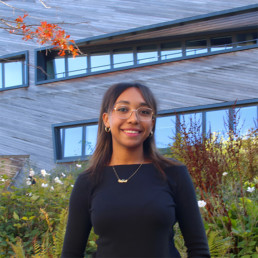
Written by Charlotte Rodney
As an undergraduate student currently pursuing my law degree at Durham University, I am an advocate passionate about Human Rights, hoping to propel into a career at the Bar. Public speaking, debating, and writing have always been passions of mine, placing conversation at the forefront of my passions. With a willingness to better understand intersectionality that is necessary but often lacking in educational institutions, I continue to pursue ventures that raise awareness on the topic of racial injustice. Writing for Durham's student publication, Palatinate, and immersing myself further into the legal field as a Durham University Women in Law Mentor, as well as being a mentee of a leading Professional Negligence barrister myself, I hope to always remain immersed in academic and working practicing fields.
467.
That is how many Black students there are, including those of a mixed background, who attend Durham University as of the 2020/2021 academic year. What’s more, that is 467 students out of roughly 22,000. Whilst, as a Black student myself, I am not shocked to see that only 2.3% of Durham is Black, this may seem low to others when considering that this is well below the national university average of around 8%, and the Russell Group average of 4%. What then is causing this? In conversation for a second time with the newfound community for Black women in Durham, Notes From Forgotten Women (NFFW), we have gone further into sharing the experiences of what it is like to be Black in Durham, delving to the root cause of the problem.
Co-founders of NFFW, Chloe Uzoukwu and Subomi Otunola gave their opening remarks on what their experiences have been like as Black women in Durham. Subomi discusses coming from a largely white background having studied in Bath, and how “I got to Durham and it seemed like that same cycle was going to continue where I barely had any black friends”. Subomi then goes on to describe her experience as “disheartening” being one of the only Black people in her History and Classics modules. “Even within my college, if I wasn’t placed with black people, I would not have spoken to them because the majority of my other friends and the people I’ve met within my college have been either people of colour, broadly or White.” Chloe echoes much of Subomi’s sentiment, describing her experiences growing up in Switzerland. “I would say that my experience in Durham has actually been arguably a big improvement from what I’m used to.”
…we ARE still here
One of the key points our discussion led us to was the difficulty of Black people coming together and finding one another at Durham. Chloe describes struggling in having to reach out to others of a similar background during her early time at the University. Whilst there is a general experience shared by all university students of having to reach out to others in your new environment, Chloe emphasises how other White students have the luxury of not needing to further search for people that look like them. “I actually really had to go and branch out on my own to find other Nigerian people… which is something that, you know, white people don’t necessarily have to do.” Sara Taha, NFFW’s social media manager, added her remarks on what she believes the key issues to be. Firstly, Sara highlights that “a lot of black people feel pressured to assimilate into a traditionally English culture”. Whilst Sara emphasises that this is not to say there is no place for Black people in a traditionally English culture, “the assimilation that a lot of black individuals feel they must do is at the expense of ever talking about their culture, heritage or race again”. Secondly, the discussion led us to the opposing point that in creating Black communities within Durham, with the hopes of bringing people together to share cultural experiences, this may in fact only help perpetuate stereotypes within the Black community. Sara adds, “ACS is a crucial society in many universities, just as it is in Durham…But, ACS does cater to certain people. It is usually led by a certain demographic.” What then is Durham not getting right about diversity at university, and perhaps more importantly what is going on within the student community that leads to these two polarising cultures?
Many readers might be familiar with a recent ranking that the University received via The Times, where we placed last out of 115 other institutions on the measure of social inclusion. Whilst this is an internal factor that many students may be aware of, it feels as though Durham aren’t doing enough about it. Chloe explains that “this reputation it has for not being socially inclusive, hasn’t affected them in the slightest. And if it hasn’t really affected them in the slightest, why would they care about changing?” As Sara would put it, “Durham has a certain aesthetic it has garnered over the years.” She explained that she believes that, “rather than try to seem integrated and diverse (like so many other universities), Durham values its inherent whiteness above all else.” So, with a socially exclusive culture that evidently does not prioritise Black students, what is Durham left with?
… Durham values its inherent whiteness above all else
To address the ever-metaphorical elephant in the room, it wouldn’t be fair to discuss diversity at Durham University without talking about the diversity in County Durham, and the North East as a whole. The Office for National Statistics has revealed that County Durham is 0.3% Black as of 2021. Nonetheless, the University isn’t made up entirely of students from the North East; in fact “Durham’s recruitment has not traditionally focussed on the local area, with large numbers instead coming from outside the North East”. So why is this University continuing to fall below the national average for Black students who attend university?
Durham University published their Access and Participation Plan, a 5 year plan set to conclude in the 2024/25 academic year. Within this plan, their section dedicated to all Black Asian and Ethnic Minority (BAME) students explains that Durham’s BAME proportion of all domiciled UK students remains below the UK national average because “there are geographical factors at work. Durham’s position is consistent with its regional context. The population of the North East Region is not very ethnically diverse, and this is reflected in the ethnic diversity of the NE universities…”. Furthermore, they raise the issue of having “a particular issue around the proportion of black students, which we have begun to address…” and this is a point we will return to later. For now, this is what the response has been. Sara comments that, “as a northerner, I know that there is a significant lack of black people here than down south. However we ARE still here.” Subomi added her remarks on the wider experience of what it means to be a student in higher education. “The very stereotype of what it means to be a student in the first place is to be white and to be of a certain privilege standing… we’re going to have to seek out these places to actually create a space for ourselves.” This is why, as Subomi remarks, there are no societies dedicated for white people. It is acknowledged that black students are in a minority, and hence communities are set up to facilitate a sense of belonging that doesn’t automatically exist like it does for white students. The sentiment may be there, yes, however it perpetuates a system where Black students are put in a space of being reminded they will always be disadvantaged. Afterall, you are perceived Black before you’re a student.
When asked for a comment, A Durham University spokesperson said: “We’re building a diverse, safe, respectful and inclusive environment where people feel comfortable to be themselves and flourish – no matter what their race, background, gender, or sexual orientation. “We recognise we have more progress to make in attracting black and other under-represented student groups to Durham, to ensure they feel welcome and to support their development while they are here.
“In making progress, it’s important to identify and develop solutions with our students, drawing on their lived experiences, as well as working with partners and specialist advisers. As part of this, we are consulting with student groups on the development of our new Access and Participation Plan. “We are also hoping to get a deeper understanding of the lived experiences of our racially minoritised students through our upcoming Equality, Diversity and Inclusion Survey which will open on 5 February. We encourage our students to respond so we can build as accurate a picture as possible – further details of how to get involved will be shared very shortly.”
Whilst statistics are great, and plans towards diversifying the University community may be well-intended, one can’t help but get a feeling that this isn’t an active priority for Durham University. For instance, their five year action plan “intends to add 100 UK domiciled black students by 2024/25”. That would be less than 0.5% of the student community. Sara expressed her disdain of the wording of a following paragraph which reads “Durham is not based in an area of the UK with a great deal of ethnic diversity and students with low aspirations are often unwilling to move significantly from their local area.” Sara explains that “I find the label ‘low aspirational’ to be offensive and based in racist stereotypes that black people ‘are not trying for a better future the way white people and other races are’.” What’s more, she calls for more compassion from the University in acknowledging the intersectionality of this issue.
I now call each and every reader to a point of reflection. As a Black student, would you find yourself recommending Durham University as an institution? The differing responses I have had perhaps speaks to the complexity of the issue. Chloe explains that, “I hate that we have to feel like we need to downplay ourselves simply because we’re afraid of stepping into white spaces. I don’t think that’s fair on us. And so I would 100% recommend the University to other Black students…but not without its warnings.” On the other hand Sara notes, “I am not likely to recommend Durham to fellow black students/friends, if they are used to a certain standard of diversity. First year, first term, was one of the most isolating periods in my life because my college was not diverse in any sense of the word.” What then are we left with considering the space, or lack thereof, there seems to be for Black students in Durham?
The very stereotype of what it means to be a student in the first place is to be white and to be of a certain privilege standing…
The University may have a lot to answer for in terms of tokenised efforts to add a mere 100 Black students by 2025, but the issue goes beyond that. We are immersed daily in a culture at this University where Black people are invisible. And in efforts to make us more visible, we are confined to our black spaces that very much have their own shortcomings. What might there be for us? The answer is simple: plenty. There is as much at this University for a Black student as there is for a White student, and every other ethnic background in between. Although it may not look like it, because the diversity is not fairly representative at all, we are still here and calling for the University to make more substantial efforts at diversity, beginning with tearing down the harmful association with Black students and low aspirations. So, the next time Durham University ranks comically low in what are extremely important areas of social inclusion, ask yourself who that benefits, and think of the number 467.
"How do we decide when to teach the names of private parts in Primary School?"

Written by Ian Timbrell
Ian is an education consultant and trainer, supporting schools develop their provision for LGBT+ pupils and their RSE curriculum. He has worked in education for 15 years; including as a class teacher and a deputy head teacher.
Debating whether to teach the names of genitals in Foundation Phase/Stage education (ages 3-7) is a nuanced discussion that encompasses considerations of child development, cultural norms, parental preferences, and educational goals. Making this discussion more complex is that in most countries (England and Wales included), when to introduce the names of genitals in Relationships and Sexuality Education (RSE) is not specified to a single age, but within a range (generally 3-11). In both England and Wales, schools are expected to teach the names of body parts, but which body parts, in which order and at what age, are not referenced. This is needed to provide schools flexibility to teach children at a stage appropriate to them, but has also resulted in a wide range of interpretations with some schools introducing the terms as young as 3, with other schools only teaching them when introducing lessons on puberty in upper KS2. I get regular questions about a particular RSE providers who provide lesson plans on the names of genitals in year 1. The rationale given by the organisation is not based in research, but in their own experience and through conversations with practitioners and so although a scheme has this lesson in, there are considerations that need to be made when deciding when to follow this guidance.
One of the reasons that it is difficult to make firm decisions about when to introduce terminology is the difficulty of finding peer-reviewed research in this area. For the most part, schools are led by either out of date research or guidance from organisations that is based on opinion and experience, rather than corroborated research. Introducing vocabulary in RSE and in areas of diversity is part of many studies and research projects and it is expected that in years to come, we’ll have more clarity in this area.
So with these difficulties in mind, what should schools do and how can we make decisions that is best for our pupils?
Arguments for Teaching Genital Names in the Foundation Phase/Stage:
- Promoting Body Positivity and Autonomy: Teaching children accurate anatomical terms for genitals fosters a healthy understanding and acceptance of their bodies. By using correct terminology, some believe that children develop a sense of body positivity and autonomy, enabling them to communicate effectively about their bodies and recognise inappropriate touch.
- Facilitating Safety and Awareness: Knowledge of proper anatomical names empowers children to articulate discomfort or instances of abuse more accurately. It is suggested that learning the correct names for genitals, like any other body part, have names helps break down taboos surrounding discussions of sexuality and promotes a culture of safety and awareness.
- Preventing Misinformation: Using euphemisms or avoiding discussions about genital names may lead to confusion and misinformation. Children are naturally curious and may seek answers from unreliable sources if not provided with accurate information in a safe and supportive environment.
- Normalizing Discussions about Sexuality: Introducing genital names in early education may usualise discussions about sexuality and reproductive health. When presented in an age-appropriate manner, such conversations may lay the foundation for future learning and promote healthy attitudes towards sexuality and relationships.
Arguments against Teaching Genital Names in the Foundation Phase/Stage:
- Cultural Sensitivities and Parental Preferences: Some parents may feel uncomfortable with the idea of their young children learning genital names in an educational setting. Cultural norms, religious beliefs, and personal values vary widely, influencing parental preferences regarding what and how topics related to sexuality are addressed in early education. Introducing the genital names without the support of parents and guardians could cause conflicts with and between home and school.
- Developmental Appropriateness: Critics argue that introducing genital names at too young an age may be developmentally inappropriate and potentially confusing for children. They suggest that focusing on broader concepts such as body boundaries, personal safety, and self-respect may be more suitable for early childhood education. There is also the risk that it may not be appropriate for pupils with certain ALN/SEND at a certain time, or that the resources don’t take into account their individual needs.
- Respecting Family Dynamics: Education systems must respect the diversity of family structures and dynamics. Some parents prefer to address topics related to sexuality and anatomy within the family unit, tailoring discussions to their child’s individual readiness and comfort level.
- Risk of Misinterpretation: Critics caution that discussing genital names in early education may inadvertently sensationalise or overemphasize the significance of genitals, potentially leading to misunderstandings or discomfort among children and parents.
Finding a Middle Ground:
In navigating this issue, finding a middle ground that respects diverse perspectives while prioritizing children’s well-being is essential. Educators and policymakers can consider the following approaches:
- Consult with parents and experts: Engage parents, carers, and experts in child development, psychology, and education to gather insights and perspectives on the issue. Work with the community to develop an approach that works for your school, not because a scheme dictates it.
- Plan for individuals: Do not take a blanket approach to teaching. Consider whether every pupil is ready and what reasonable adjustments need to be put into place for certain pupils.
- Provide opt-out options: When permitted by the curriculum, offer parents the opportunity to opt their children out of specific lessons or discussions related to genital names, respecting their autonomy and preferences.
- Emphasise sensitivity and inclusivity: Approach discussions about genital names with sensitivity, inclusivity, and cultural awareness, acknowledging diverse perspectives and beliefs within the community.
The debate over whether to teach genital names in early childhood education reflects the broader discourse surrounding sexuality education, child development, and cultural sensitivities. The review of RSE in England may provide additional transparency around this issue, but until then, we have to use our professional judgement and work with all stakeholders to ensure that our children get quality RSE and are safeguarded against harm.
Empowering PSHE Leadership: Leading with DEI Principles
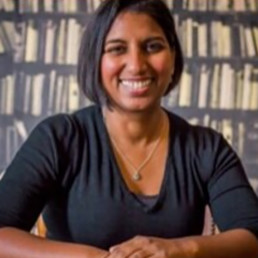
Written by Malarvilie Krishnasamy
Malarvilie is a seasoned leadership consultant, coach, and trainer with over 20 years of experience in education. As a former history teacher and senior leader, she passionately advocates for coaching as a catalyst for transforming school cultures. Malarvilie offers accredited courses, endorsed by The Institute of Leadership, which develop emotional intelligence and assertive leadership skills. Her reflective and supportive programmes enhance staff morale and well-being, promoting humanity in leadership. A vocal proponent of equity, diversity, and inclusion, she actively engages as an ally through speaking engagements, workshops, and amplifying the work of others. Malarvilie is also deeply committed to promoting Personal, Social, Health, and Economic (PSHE) education, recognising its pivotal role in nurturing well-rounded individuals.
I’m excited to tackle a topic that’s not just important but essential in education: leading PSHE with a DEI (Diversity, Equity, and Inclusion) lens. As educators, we know that PSHE isn’t just about teaching facts; it’s about nurturing well-rounded individuals who are equipped to navigate the complexities of life. That’s why it’s crucial to infuse DEI principles into our PSHE curriculum, acknowledging and respecting the diverse cultural backgrounds and experiences of our students. Join me as we explore how embracing DEI principles can transform PSHE education and create a more inclusive learning environment for all.
In many cultures, discussions about puberty, relationships, and sexual education may not happen at home. This leaves young people to rely solely on their friends or inaccurate information from the internet. This highlights the importance of PSHE education as a reliable source of accurate information. By providing comprehensive and inclusive PSHE/RSE in schools, we can ensure that all young people have access to the correct information, regardless of their background or cultural context.
Moreover, fostering an inclusive environment in PSHE lessons creates a safe space where students feel comfortable discussing their experiences and asking questions. This helps break down barriers and ensures that every student feels valued and supported in their journey through puberty and relationships, not just in terms of biological changes but also emotional and social aspects.
But leading PSHE isn’t just about delivering lessons; it’s about cultivating a whole-school approach to well-being and inclusivity. This involves considering staff values and providing them with comprehensive training sessions to navigate sensitive topics effectively, ensuring alignment with the values of the school, the curriculum, and the 2010 Equality Act. Staff members, while bringing their own values, must understand and adhere to the principles outlined in the Act, which mandates the promotion of equality and diversity within educational settings.
Additionally, understanding local and national statistics regarding teenage health issues, such as drug use, alcohol misuse, underage sex, lack of condom use for teenagers, and teenage pregnancies, equips educators with evidence to emphasise the importance of PSHE education. By sharing this information and ensuring staff awareness of their duty as PSHE teachers within the British curriculum, we can empower them to confidently and effectively deliver PSHE education, thereby supporting the well-being of our students.
But PSHE leaders often get left out in the cold. Schools know PSHE is important, but they don’t always give leaders training to lead effectively.
The challenges faced by PSHE leaders extend beyond traditional teaching roles. Effective communication with staff, parents, and students is paramount, but the support in developing these skills often falls through the cracks. PSHE is a whole school subject. Unlike other subjects, it’s rare to have dedicated PSHE teachers, and leaders must coordinate a diverse group of educators, each with their primary subject expertise. This aspect is often underappreciated, with a mere 1 management point failing to reflect the intricacies of PSHE leadership.
Additionally, the unique pedagogy required for PSHE is often overlooked in training programs, preventing the ability to deliver PSHE effectively. It’s time to invest in the professional development of our PSHE leaders.
That’s where the Level 5 Inclusive and Progressive Leadership of PSHE Course comes in—a comprehensive solution to bridge these gaps. This course equips PSHE leaders with the skills, knowledge, and awareness needed to excel in their roles. From diplomacy and communication to the unique pedagogy of PSHE, this program addresses every facet of effective PSHE leadership.
Conclusion
Leading PSHE with a DEI lens is not just a responsibility; it’s a commitment to creating a safe, inclusive, and empowering learning environment for all students. By incorporating diversity, equity, and inclusion into our approach to PSHE, we ensure that every young person receives the support and education they need to navigate the challenges of puberty, relationships, and well-being.
Equipping staff with the necessary training and awareness of their duties under the 2010 Equality Act empowers them to deliver PSHE education effectively, promoting the health and well-being of our students. Let’s continue to champion a holistic approach to PSHE leadership, where every student feels valued, respected, and supported in their journey toward adulthood.
Click HERE to download your free PSHE DEI self-assessment!
Click HERE to download your free KS2 or KS3 Diverse Perspectives self-assessment!
Also for further resources have a look at the The Diverse Educators’ Inclusive RSHE Toolkit – Inclusive RSHE Toolkit | Diverse Educators We are collating a growing bank of resources to help you to review and develop how inclusive the RSHE provision is in your school.
So You’re the Coachee
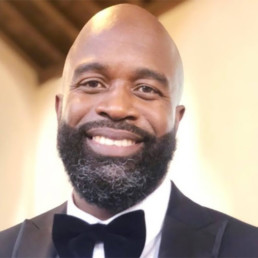
Written by Dwight Weir
Dwight is a Deputy Headteacher and Life Coach. He is also an inspector for British Schools Overseas. Dwight has a passion for coaching and leadership development.
Oftentimes we hear about the coach and the skills required to be an effective coach. Not much is said about the coachee – the other very important one in the relationship. The coachee, is a person who receives training from a coach. My learnings from various coaching experiences as a coachee have allowed me to craft certain skills and attitudes which I share as the skills or attitude needed by coachees.
- You answer your own questions. In answering your own questions, you are often engaged in a radical thinking process, examining your challenge and context and then finding the best way through the challenge. The thinking environment is a philosophy of communication developed by Kline (2009), which enables people to think for themselves and think better together. It is a simple, rigorous and radical set of processes. Coaches don’t answer your questions but provide you with the means to think through and find answers yourself.
- You take more risks – It is through risk taking that you know if your ideas will work. On the journey to success – radical decisions are made. You make these decisions as you know you’ll be able to reflect and discuss your thought process with the experienced other – the coach.
- You become more reflective – a great amount of the discussions with the coach is reflective. Researchers such as Muir and Beswick (2007) suggest that there are different levels of reflection that can take place, which move from descriptive to critical forms. It is the critical reflections that help us transform our practices.
- You must embrace quiet moments – embrace quiet moments as you think through your own hurdles. During the mentoring process these quiet moments are filled with answers by the mentor. Within the coaching relationship you don’t need answers you need a sounding board – the experienced other – the coach, to discuss your ideas. Here you find out for yourself. Notice ‘find out’ not told about.
- You become open to criticism – great coaches are frank and open. In coaching relationships you are told the brutal truth about your observed movements, dialogues, expressions and attitude. During your intake session a good coach will ask you how you’d like to be challenged or not. Does it make sense you start this journey, not wanting to hear the truth? Feedback is a gift. You can return the gift. But on these occasions, you keep the gift, as in true coaching relationships trust is the base from which change is realised.
A lot can be gained throughout coaching journeys and relationships. What is more and more apparent is, coaches don’t give answers but feed with questions which enable meaningful thought and self-discovered answers to your challenges. This is a skill only the experienced other could exhibit flawlessly and empower the coachee to unravel options and find answers. I describe this process as a journey, this relationship develops gradually after establishing trust and an openness to feedback from your coach.
Coaching relationships should be for a proposed period of time. It should be anticipated that the experienced other will equip coachees with the skills to enable their success then release them to grow.
Can you be coached if you don’t display these attitudes? Of course – it just might take you a little longer.

